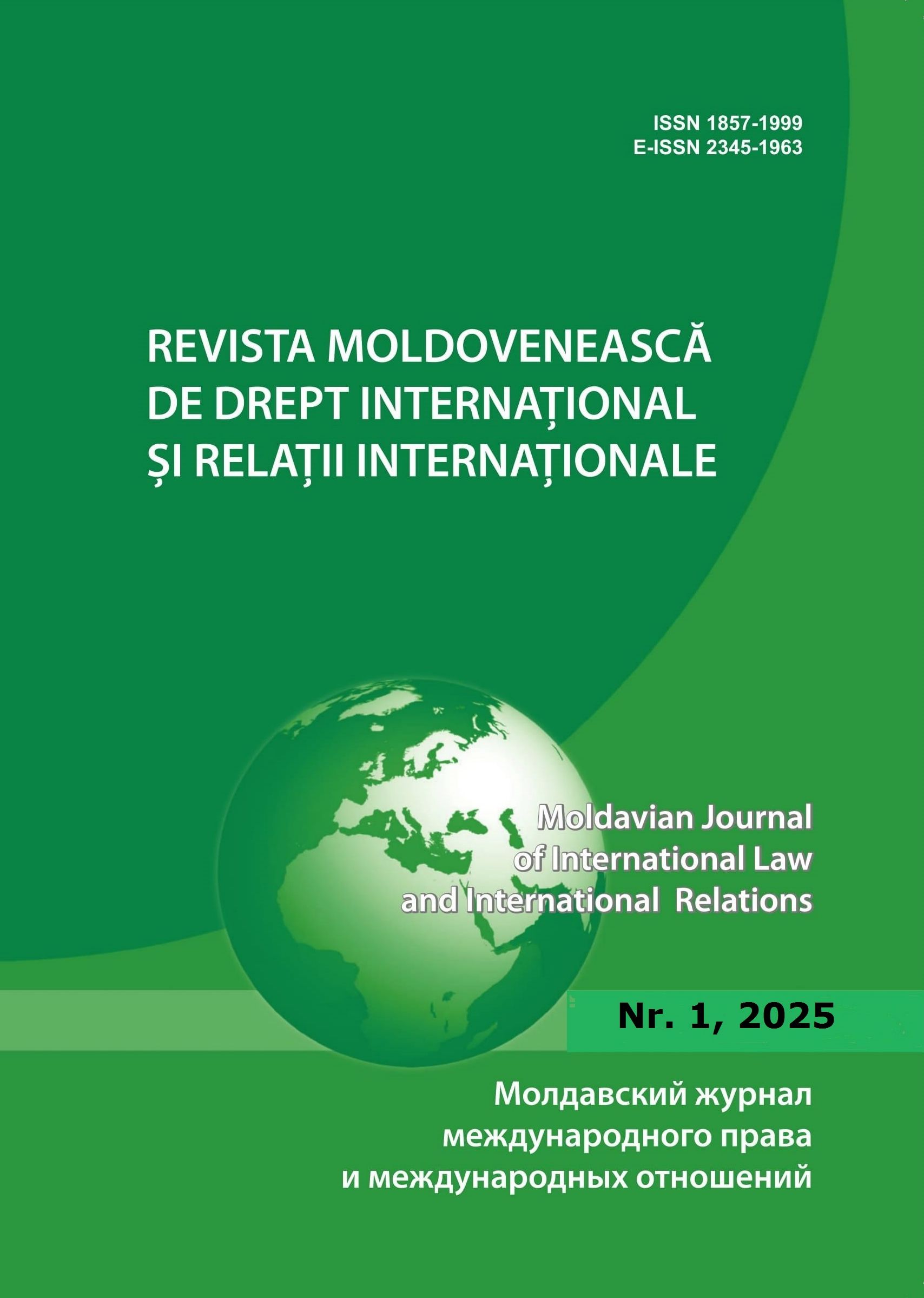Moldavian Journal of International Law and International Relations
DIGITAL DIPLOMACY FOR PEACE: A NEW FRONTIER IN INTERNATIONAL RELATIONS
Author: LISENCO Vladlena
JEL Classification: F51, D74, Z18, L86
Universal Decimal Classification: 327.3:004.738.5, 327.7:316.48
DOI: https://doi.org/10.61753/1857-1999/2345-1963/2025.20-1.03
LISENCO Vladlena - Doctor of Juridical Sciences, Associate Professor, The University „Taras Shevchenko”of Tiraspol (Tiraspol, The Republic of Moldova).
https://orcid.org/0000-0002-9846-2750Email: vlada.lisenco@gmail.com
Keywords: Digital diplomacy, peacebuilding, conflict resolution, misinformation, cybersecurity, transparency, international relations, global stability.
Abstract
The rise of digital technologies has changed how countries interact, offering new ways to promote peace and solve global conflicts. Digital diplomacy is a modern approach that uses information and communication technologies to improve dialogue, cooperation, and understanding between nations, organizations, and citizens. This article looks at how digital tools and platforms support peacebuilding, especially by connecting different groups, fighting misinformation, and resolving conflicts. Digital diplomacy allows governments and non-governmental actors to communicate in real time, giving marginalized communities a voice and encouraging inclusive participation in peace efforts. By increasing transparency and accountability, it modernizes traditional diplomacy and provides tools to address conflicts early. Digital platforms also play an important role in encouraging cultural exchange and aiding humanitarian initiatives in conflict zones. Despite its potential, digital diplomacy faces serious challenges. Cybersecurity risks, unequal access to digital resources, and the misuse of technology to spread disinformation threaten its success. This paper highlights the need for global agreements, ethical guidelines, and programs to strengthen digital capacity to minimize these risks and ensure that digital diplomacy supports peace rather than creating new tensions. Using real-world examples and theoretical perspectives, this research explains how digital transformation is changing diplomacy in the 21st century. It argues that integrating technology into diplomatic practices is crucial for building long-lasting peace and ensuring global stability. This approach opens new opportunities for innovation and cooperation in international relations.

